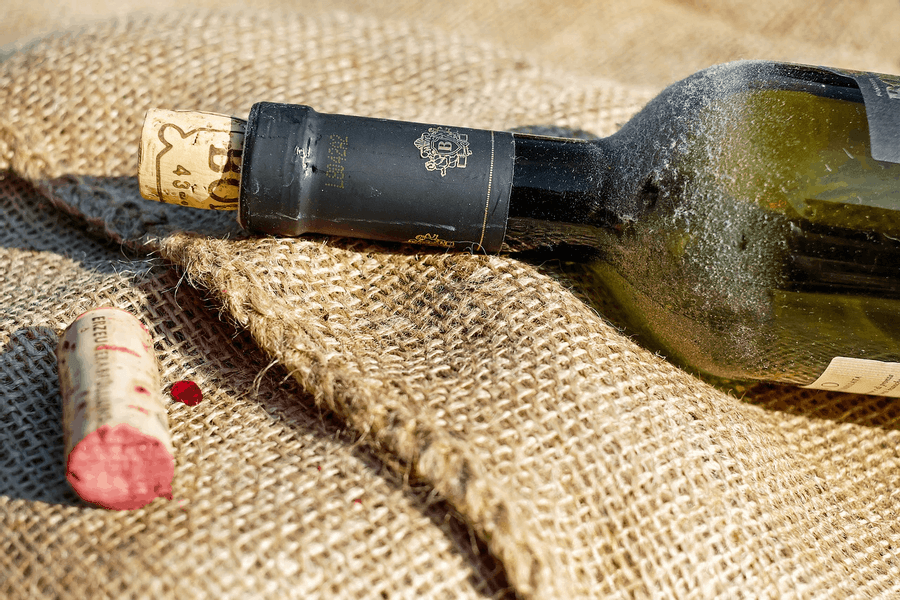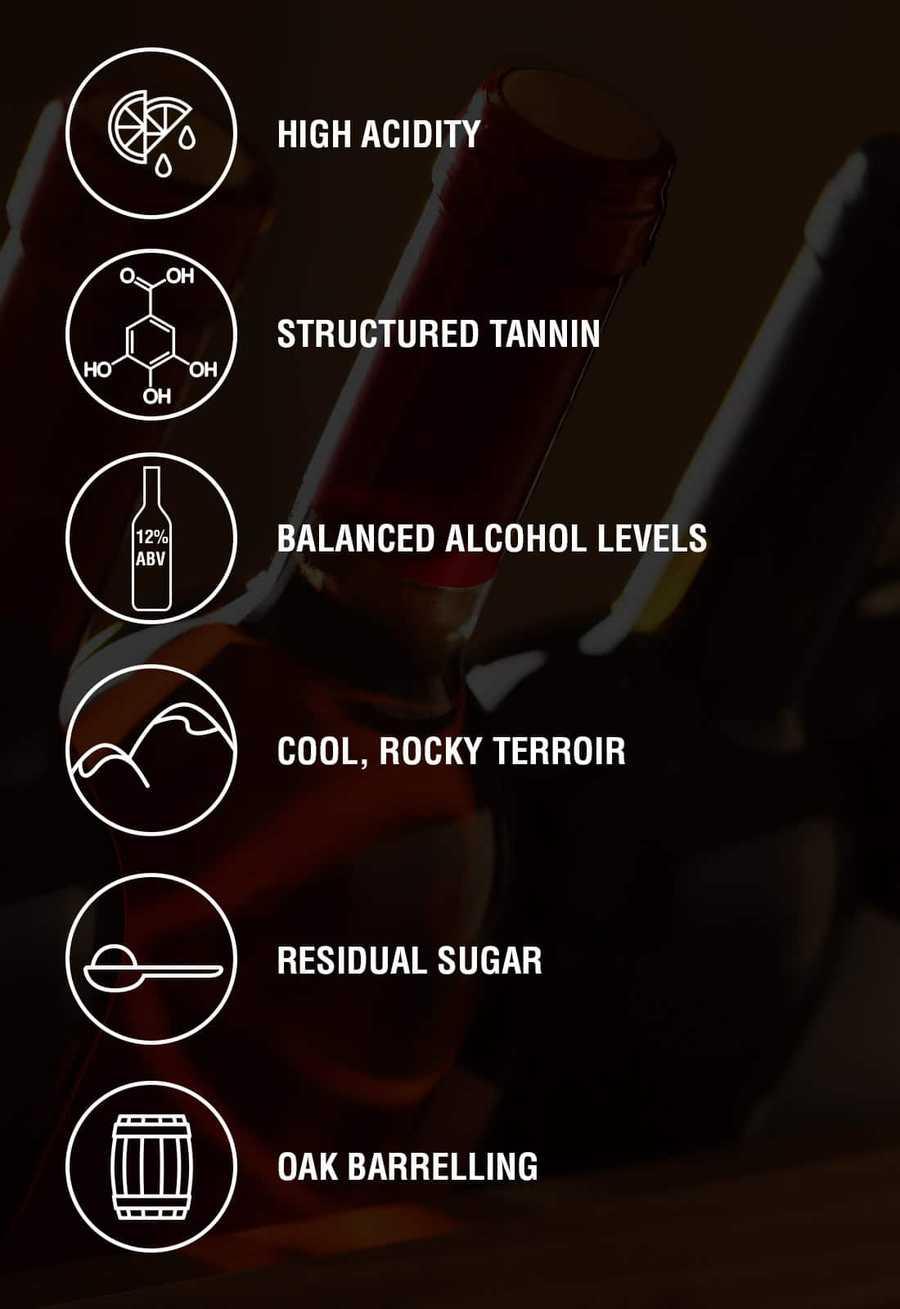How to Buy Wine for Aging: Your Guide to The Longest-Lived Wines - Vinfolio Blog
Curated from: blog.vinfolio.com
Ideas, facts & insights covering these topics:
13 ideas
·241 reads
Explore the World's Best Ideas
Join today and uncover 100+ curated journeys from 50+ topics. Unlock access to our mobile app with extensive features.
Why Age Wine?
Knowing how to buy wine for aging is a challenge for many beginner collectors. This is partially because it’s easy to conflate quality with aging potential. However, just because a wine is delicious and received high scores from critics does not necessarily mean it can age for decades. So, which wines do have great aging potential and why should you age wine at all?
Aging wine is an important part of wine collecting for many collectors and it can be an incredibly rewarding experience. Buying wine young and laying it down to age has a number of advantages, including:
3
52 reads
Development of complex, mature flavors
The flavor profile of many age-worthy wines shifts over time. The flavors become more complex and savory, the aromatics turn into a bouquet, and the tannins become fine and silky. This isn’t true of all age-worthy wines (some stay more or less the same with age), but the vast majority of wines with aging potential show at least some flavor evolution.
3
26 reads
Higher return on investment
If you consider fine wine a financial asset, then age-worthy bottles are some of the most reliable investments. You can buy bottles at a relatively low cost while they’re still immature and then resell them on the secondary market at peak maturity and at a much higher price.
3
19 reads
Ideal for special events
Aging wine yourself prepares you for future milestone celebrations. If you have a special occasion coming up like an anniversary or graduation, you’ll already have a collection of impressive, mature wines to choose from.
3
18 reads
More time to decide what to do with your wine
If you’re unsure whether to open that valuable bottle of 2001 Château d’Yquem or resell it later, you don’t have to make a decision right away. A wine like this could easily age for another few decades, giving you more than enough time to make your choice. A decade from now, you might discover that your wine is worth much more than expected (or vice versa). Or, if your tastes change, you can use the profits from selling your older wines to buy new bottles that better match your current tastes.
3
14 reads
What Qualities Do Age-Worthy Wines Share?
A few qualities set age-worthy wines apart from most other wines.
A wine doesn’t need to have all of these qualities to be age-worthy. For example, Château d’Yquem and other Sauternes producers make wines that are high in acidity but not particularly tannic. The acidity alone is enough to increase the aging potential.
3
21 reads
Need To Be Oak Fermented
Some wines have one or more of these qualities but are still meant to be drunk young. A good example of this is Sauvignon Blanc. This variety is high in acidity, yet most of these wines don’t age well (with some exceptions). This is partly because producers typically don’t ferment Sauvignon Blanc in oak. Instead, they choose to make crisp Sauvignon Blanc that drinkers can enjoy immediately upon release.
3
14 reads
VARIETIES AND STYLES THAT AGE WELL
It’s also important to keep in mind that just because a wine is age-worthy doesn’t necessarily mean it’s valuable. If you’re looking for ageable wines that you can resell on the secondary market later, then you’ll need to invest in wines that are both age-worthy and profitable.
Commandaria is a sweet red wine that can age for centuries, yet most bottles are inexpensive.
A bottle of 2009 Château Cheval Blanc has great aging potential but will also increase significantly in market value over the next few decades.
4
13 reads
value or quality
Aging potential doesn’t automatically correlate to value or quality. You should invest in long-lived wines only if you want to taste how they evolve or if you plan on reselling your bottles after they reach maturity.
3
16 reads
Nebbiolo
Why it ages so well: Nebbiolo is extremely acidic and tannic. It’s a well-structured wine that is not very approachable in its youth but that mellows with age.
Aging potential: 20+ years (in the case of fine Barolo)
3
14 reads
How to Buy Wine for Aging (and Store It Properly)
Before you buy any age-worthy bottles, make sure you have a safe place to store them. Full-service professional storage services are the best option for keeping bottles that have aging potential because there’s less risk of damage and spoilage than if you kept them in a home cellar or self-storage locker . A storage warehouse is maintained at precise environmental conditions, with careful temperature and humidity regulation. Bottles are also kept in secure containers that block light and prevent vibration.
3
10 reads
Under these conditions, wine can mature slowly and gracefully without any disruptions. Another benefit of using professional storage services is that you won’t be tempted to open your long-lived wines too early. If a bottle is sitting in your basement cellar, it’s easy to grab it by mistake or give in to the temptation to open it at your next dinner party. For this reason, many experienced collectors keep their best bottles out of reach.
3
12 reads
Once you have a storage plan for your wine, you can buy your first age-worthy bottles. One way to make the most of your investment is to buy full cases of a single vintage whenever possible. This allows you to open one bottle from the case every few years to see how the vintage is maturing. You may find that a vintage is developing faster than you expected, and you can plan to open the bottles soon or resell them on the market.
You may find that the wine is maturing much more slowly than anticipated. In this scenario, you should delay opening your next bottle or wait longer to sell.
3
12 reads
IDEAS CURATED BY
Similar ideas
Read & Learn
20x Faster
without
deepstash
with
deepstash
with
deepstash
Personalized microlearning
—
100+ Learning Journeys
—
Access to 200,000+ ideas
—
Access to the mobile app
—
Unlimited idea saving
—
—
Unlimited history
—
—
Unlimited listening to ideas
—
—
Downloading & offline access
—
—
Supercharge your mind with one idea per day
Enter your email and spend 1 minute every day to learn something new.
I agree to receive email updates


